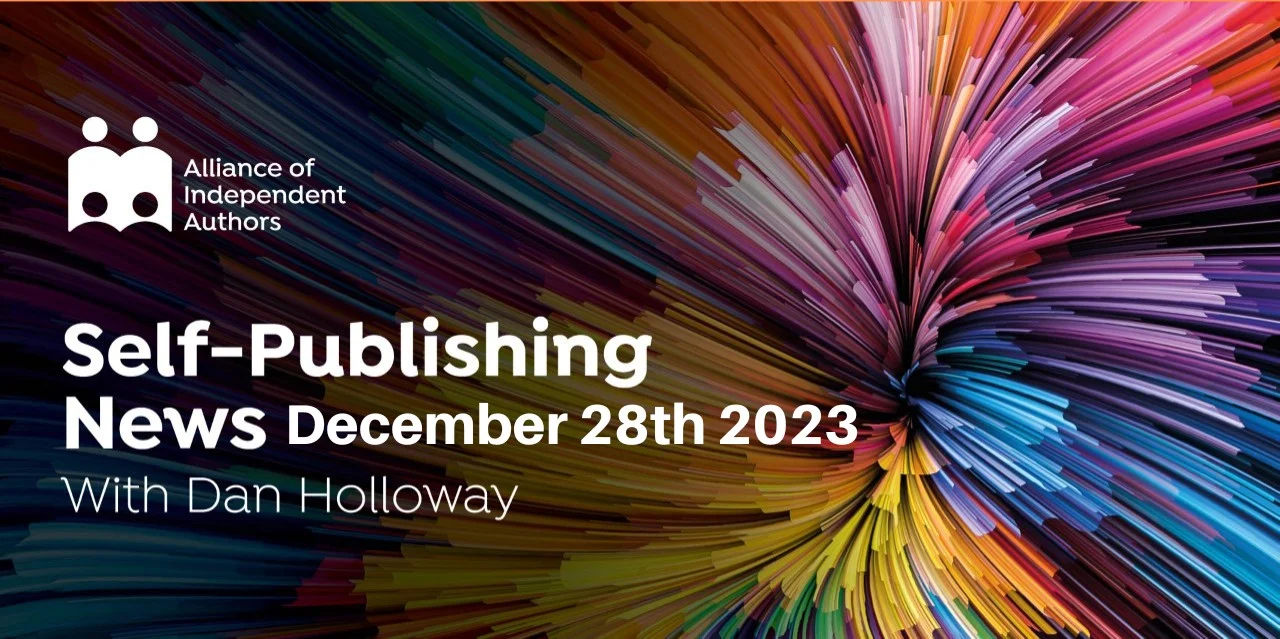
ALLi News Editor, Dan Holloway
I wondered if I might follow in the footsteps of the esteemed dictionaries of Oxford and Cambridge and decide which new or newly used word best sums up the year’s zeitgeist. But instead I’ve gone for a very old word. It’s one we think about most years as writers. But this year it’s been in the news as well – most recently in just the last few days.
And that word is.
Income.
What seems like a lifetime ago, in the late spring and early summer, ALLi released the results of its first (and the first, in any meaningful sense) Indie Author Income Survey. What is going to be most exciting of all about that survey is that it is the start of a longitudinal exercise. Which means that we will get some really granular detail in the coming years not just of how indies as a sector are performing, but how developments like AI and subscription streaming start to reshape our income (and how that differs from genre to genre).
The headline figures were something to cheer. Indies who spend more than half their time writing or on writing-related activity earn more than traditionally published authors who do the same. We earn, as a median, $12,000 compared to their $6-8,000. And the mean, which is obviously skewed but nonetheless interesting, is a whopping $80,000.
Spotify and Audiobooks
And then we come right up to date with a story that would have been my final report of the year in the absence of any retrospective. Spotify has been the company that has dominated the literary news this year. It has finally made its audiobook move in two big connected steps. The company has offered premium subscribers 15 hours a month of audiobooks with their subscription (an amount that almost exactly fits the one and a half books that the industry has consistently found people with unlimited access would consume). And it has signed deals with the big publishing houses to access their audiobook libraries (while as indies we can also reach Spotify listeners through platforms like Findaway Voices).
Writers and their representatives have been increasingly concerned about what those deals might entail. It transpires they were markedly absent from the room when the deals were made. This week, Bloomberg got hold of some of the details of one of those deals: with Pan Macmillan. It seems that Spotify will add up the total minutes of listening time, divide by the length of the audiobook, and pay a discounted amount of the a la carte price for each of those “books” listened to. Figures are as yet not included, but authors have already raised eyebrows sufficiently for LinkedIn to have collated a post on their concerns, and headlined it with a figure from the music industry: that in 2020, 1% of musicians on Spotify earned 90% of the income.
What we will find out next year, as royalty statements and micropayments start to trickle in, is exactly how much writers will actually gain from Spotify’s entry into the market. The music industry stands as a stark lesson that global access to listeners does not mean newfound riches for the artists those listeners discover. And the recent eye watering sums offered to high profile podcasters suggest that Spotify is still treading a well-worn path from the music and publishing industries of providing vast riches to a chosen few while the vast majority are left to pick up scraps from a pool that has been diminished by those rash high profile purchases.





Could you include a link to BlueSky on your posts. It would be great to share direct from these updates. There are very active and engaged author groups on BlueSky. Thank you.